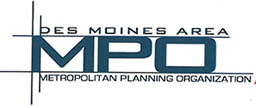Ever since I became the mobility manager for Polk County, my perspective on the physical world around me has changed. It has changed because of the people that I work with every day. For those that are not acquainted with this field, I can provide a broad definition: Mobility management uses innovative approaches for managing and delivering coordinated transportation service to customers, including older adults, people with disabilities, and individuals with lower incomes.
As the mobility manager, I have spoken with a number of people about transportation and the difficulties they can often face getting around their community. The people I speak with encounter several barriers to transportation including income, service availability, and accessibility.
The meaning of accessibility can differ depending on the individual, especially where community mobility is concerned. For some, accessibility can be as simple as knowledge of existing resources and tools that can be used to help them get places. Yet, for others, accessibility means so much more than that. Accessibility goes beyond knowledge and relates to community infrastructure. For those individuals, mobility is dependent upon the decisions of the community at large – lawmakers, administrators, businesses, and, most importantly, the public.
Imagine, if you will, that you have a visual impairment and also use a wheelchair. You are unable to drive and rely on public transit to get to work, appointments, the grocery store, and all other destinations. There is a bus route that runs near your house. However, the sidewalk you use to get to it is non-existent in places. In addition, the street that you have to cross may not have a curb cut, so you have to move along the street in traffic until you can get back onto the sidewalk. Although a large amount of the public does not encounter these obstacles when they go to work or make other daily trips, they remain impediments for others.
Through my work with seniors and people with disabilities, I have gained a greater understanding of the everyday challenges that others face. Everywhere I look, I see great strides toward a more accessible community; however, there also remain opportunities for improvement. As we move toward 2050, we all should keep in mind that community mobility and the freedom it provides us should be accessible to all citizens. As community members, we have a responsibility to ensure that everyone has the opportunity to visit a friend, participate in community activities, and have access to employment. To uphold this responsibility, we need to address the accessibility of our community infrastructure through The Tomorrow Plan. Let’s bring our region forward by providing everyone an opportunity to access community mobility.
 Jennifer Roberts serves on The Tomorrow Plan Young Professionals Advisory Committee. She is currently the mobility coordinator for Polk County and works with transit, case management, and service coordination agencies within Polk County to address transportation needs within the area. Jennifer has a Master’s in Community and Regional Planning from Iowa State University and a Bachelor’s in Anthropology from the University of Iowa.
Jennifer Roberts serves on The Tomorrow Plan Young Professionals Advisory Committee. She is currently the mobility coordinator for Polk County and works with transit, case management, and service coordination agencies within Polk County to address transportation needs within the area. Jennifer has a Master’s in Community and Regional Planning from Iowa State University and a Bachelor’s in Anthropology from the University of Iowa. 



